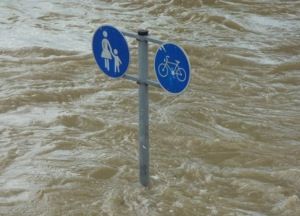News
Climate panel urges urgent action on CO2
This article is more than 7 years old.
Although governments worldwide have pledged to keep global temperatures down, scientists warn that the pace has to be considerably stepped up if these measures are to have any chance of working

If we don’t act quickly, low-lying and coastal areas could soon be underwater (photo: pxhere)
A new climate report authored by 91 scientists from 40 different countries once again underlines the necessity to take urgent and unprecedented action if the rise in global warming is to be restricted to 1.5 degrees by 2100 – measured relative to conditions before industrialisation.
The UN climate panel IPCC is behind the report that was published yesterday.
The report reveals that CO2 emissions from human activity must fall by 45 percent in 2030 compared to the level in 2010, and emissions should be completely neutral from 2050 if the target is to be met, reports TV2 Nyheder.
Less talk, more action
Denmark’s climate minister, Lars Lilleholt, has pledged to press for more ambitious climate policies – both here and in the EU.
“The report paints a very gloomy picture. Time is of the essence and there must be action behind the political ambitions if we are to succeed in slowing down climatic change to a manageable level,” said Lilleholt.
Jens Mattias Clausen, the climate advisor for the environmental group Greenpeace, agrees. “We are at a crossroads. The next 10-15 years will be critical,” he said.
Caps and underground reservoirs
Clausen would like to see fossil fuel cars phased out on the Danish roads more quickly than currently planned and more sustainable energy projects, coupled with energy savings and a faster phasing-out of coal-fired power stations in Denmark.
One measure that might be used after 2050 is to suck CO2 out of the air and pump it underground into reservoirs, but this technology is largely untested.
The report has compared the effects of a temperature increase of 1.5 degrees to one of 2 degrees. One noticeable effect of the half-degree increase would be sea levels being around 10 cm higher in the year 2100.
Cleaner air
In a very timely move, the government has today unveiled a new clean air initiative to reduce pollution in Denmark’s largest and most populous towns.
Copenhagen, Frederiksberg, Aarhus, Odense and Aalborg will be able to introduce stricter environmental constraints on diesel-powered lorries, buses and vans through the setting up of environmental zones.
Additionally, they can also tighten up existing regulations so that older diesel lorries, buses and vans have to live up to the newest standards.
“With the new regulations, the total amount of soot particles from traffic in the big cities could be reduced by up to a quarter,” said the environment minister, Jakob Elleman-Jensen.
Reducing the death rate as well
Traffic is responsible for 45 percent of all pollution from the toxic NOx gases and 10 percent of all particle emissions – and even more during the rush-hours.
As well as contributing to pollution and global warming, this type of pollution is also responsible for premature deaths and illnesses and is a daily source of inconvenience for people living along the main traffic arteries.










































